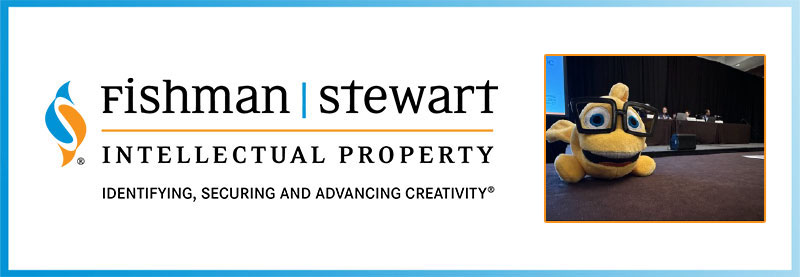Intellectual Property Insights from Fishman Stewart PLLC
Newsletter – Volume 24, Issue 12
Share on Social

A Split Decision: When Band Owners Disband, Who Owns the Brand?
Fights over ownership of band names seem to make up a disproportionate share of trademark disputes.
Perhaps this is not surprising.
Bands often start out as creative endeavors among friends, and bands may not prove lucrative for many years, if at all. Until bands break up, thought and planning may not be given to who is the owner of the band names and entitled to use them going forward.
Some of the biggest bands in rock history have seen name ownership disputes, including The Beach Boys, Creedence Clearwater Revival, The Doors, Talking Heads, Sister Sledge, The Isley Brothers, and Stone Temple Pilots, to name just a few.
The norm in the music industry is that an artist or group generally owns its own name. However, in the case of “concept groups” such as Menudo, New Kids on the Block, and Spice Girls, ownership by management is common.
Management recruits and casts concept group band members and controls the image and style of the group, functioning like the producer of a theater company. Ownership of the band names by management has been recognized and confirmed by the U.S. Trademark Office and the courts. Often, disputes will turn on whether or not the band is a concept group, as in the recent case involving the band name SPLIT DECISION.
In determining trademark ownership, the courts and the Trademark Office consider the parties’ objective intentions or expectations, who the public associates with the mark and to whom the public looks to stand behind the quality of goods or services offered under the mark.
In the SPLIT DECISION case, notwithstanding a management agreement that specified “Musician acknowledges that the names of the bands and that the trade secrets and confidential information are owned and shall continue to be owned solely by the Manager,” the band’s use of SPLIT DECISION predated the agreement by two decades.
Evaluating the relevant factors, the Trademark Trial and Appeal Board determined that the band members owned SPLIT DECISION, not the manager.
Pharrell Williams is one of the most recent musicians to be involved in an ownership dispute.
Pharrell Williams and Chad Hugo are the two members of the hip-hop production duo The Neptunes. Pharrell Williams’ PW IP Holdings, LLC, filed trademark applications for THE NEPTUNES for a variety of goods and services. Chad Hugo recently petitioned to cancel two registrations for THE NEPTUNES for musical recordings and opposed registration of three applications for THE NEPTUNES for music-related goods, entertainment services, and streaming services. At issue is the claim of ownership of THE NEPTUNES by PW IP Holdings, LLC, alone. These proceedings are currently pending.
Finally, an update to our previous story about Winnie-the-Pooh entering the public domain: The slasher film Winnie-the-Pooh: Blood and Honey won big this awards season, sweeping the five categories it was nominated for: picture, director, screenplay, screen couple and remake/rip-off/sequel. We’re talking the Razzie Awards, of course.
On January 1, 2024, The House at Pooh Corner by A.A. Milne entered the public domain, which means that Tigger, who first appeared in this book, is now also in the public domain. Winnie-the-Pooh: Blood and Honey 2 was released on March 26, 2024, and Tigger is featured in this sequel.
Michelle Visser is a partner of Fishman Stewart, with over 25 years of experience practicing trademark law with other members of the firm’s Trademark Group.

Fishman Stewart Attends AIPLA!
Fishman Stewart attorneys, Michael Stewart and Kristyn Webb, attended the Spring Meeting of the American Intellectual Property Law Association in Austin, Texas. Michael and Kristyn coordinated a panel on “The IP of Music” featuring Jim Jesse, Judith Finell, and Roy D’Souza. Daphne Lainson moderated—and danced!


Related Content from Fishman Stewart
In our previous FishTank article “The Great Beige-Off: Influencer Sues for ‘Vibe’ Infringement,” we reported on Sydney Nicole Gifford’s lawsuit against fellow influencer Alyssa Sheil over allegations of copyright infringement involving neutral-toned social media content.
People have long pondered whether or not the Giza pyramids were indeed solely burial chambers, which was the only known, and archaeologically determined, use—until now.
As the story goes, Klein was so taken with the indescribable blue of the sky over the Mediterranean in Nice, France, that he dedicated his artistic talent developing a blue that would imbue the canvas with this color in its purest form.
Despite her pseudo-legal background in Suits, Meghan has been running into one issue after another in her efforts to register the trademark and logo for her new lifestyle company, for now, called “AS EVER”.
By 1930, efforts began in New York to replace Mother's Day with Parent's Day because men were more than just breadwinners. Those efforts didn't catch on, probably because in that era, women often spent more time in the home.
In February, Nike and Skims announced that they will be working together on a new brand, NikeSkims. The co-brand will create a new line of training apparel, footwear, and accessories specifically designed to meet the unique needs of women athletes.
Generally, federal courts have exclusive jurisdiction over copyright cases, and often, this presents an insurmountable paywall for individual artists and small businesses to vindicate their rights, especially where the value of the individual copyrighted works are relatively low.
Dedicated to raising public awareness about the importance of encouraging innovation and creativity throughout the world, the World Intellectual Property Organization (WIPO) annually observes World Intellectual Property Day on April 26 to showcase the role that patents, trademarks, industrial designs, copyrights and trade secrets play in our everyday lives.
Hold onto your foam fingers, sports fans – college sports just got a whole lot more interesting! The latest updates to Name, Image, and Likeness (NIL) rules are making student-athletes bigger than ever, and it’s not just about the game anymore.
Did a federal court in Louisiana recently decide that US copyrights are global rights? It seems so.
IDENTIFYING, SECURING AND ADVANCING CREATIVITY®

















